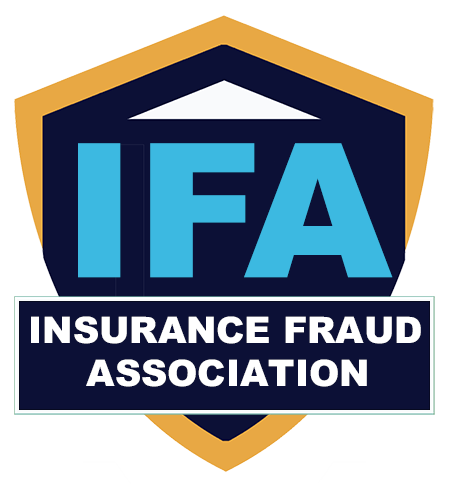
insurance fraud image
Insurance Fraud – Understanding and Preventing Fraudulent Activities in Insurance
Insurance fraud is a pervasive issue that undermines the integrity of the insurance industry, inflicting substantial financial losses on companies and elevating premiums for honest policyholders. The Insurance Fraud Association is at the forefront of educating individuals and organizations about the intricacies of fraudulent activities. By delving into the various forms of insurance deception and highlighting effective prevention strategies, we can collaboratively safeguard the sector’s future. This article aims to illuminate the dynamics of insurance fraud, providing insight to better understand and combat this complex and costly crime.
Understanding Insurance Fraud and Its Various Types
Insurance fraud is an intentional act of deception committed by a person or entity in the insurance process with the aim of financial gain. It encompasses a wide spectrum of crimes, ranging from exaggerated insurance claims to the fabrication of accidents or damages. Insurance companies across the spectrum are affected by both hard fraud and soft fraud. Hard fraud involves the deliberate staging of an accident, injury, theft, arson, or other intentional loss to receive compensation or insurance payouts. On the other hand, soft fraud, which is just as detrimental to the industry, typically involves policyholders exaggerating legitimate claims to obtain more significant compensation or falsifying information on applications to acquire lower premiums.
The types of insurance fraud are manifold, spanning life, health, auto, and property insurance. In property and casualty insurance, for instance, policyholders may damage their own property intentionally to claim compensation. Similarly, in auto insurance, individuals might stage collisions to file multiple claims for the same damage. Insurance crimes are not limited to policyholders alone; sometimes, even those within a company or insurance fraud association may engage in such criminal activities.
To address these challenges, a task force is often implemented within insurance companies and the field at large, which collaborates closely with a fraud bureau or the wider insurance fraud association to detect and curtail fraudulent activities. Central to these efforts are the authentications of insurance claims, thorough investigation of suspicious activities, and scrutinizing the legitimacy of compensation requests. The establishment of an anti-fraud policy by an insurance company helps to mandate a zero-tolerance approach towards fraud.
Insurance fraud significantly inflates the cost of premiums, as insurance companies need to recuperate losses due to fraudulent claims. This effectively imposes an indirect economic burden on every consumer who purchases insurance policies, thereby making fraud prevention a shared responsibility. A key tactic in combating insurance fraud is consumer education on the types of fraud and their inherent consequences, provided often by the insurance fraud association, leading to more vigilant and informed policyholders.
In summary, understanding the various facets of insurance fraud and implementing stringent measures to prevent such criminal activities is essential for safeguarding the integrity of the insurance industry and protecting the interests of both the company and the consumer.

Insurance Fraud is a serious crime
Consequences of Property and Compensation Insurance Fraud Acts
Insurance fraud is an illicit act that encompasses a variety of schemes and subterfuges. One key aspect of this crime centers on property and compensation, where the impact of fraudulent activities can have severe consequences for the perpetrators, the victims, and the broader aspect of the law within the United States. When considering property insurance fraud, it’s essential to understand that someone might deliberately cause damage to their assets to claim compensation they’re not rightfully entitled to. This act not only undermines the trust inherent in the insurance system, but also inflates premiums for all policyholders, making it a crime with far-reaching implications.
Compensation fraud, often arising in the context of worker’s compensation, sees individuals falsely claim injury or damage to secure financial gain. The criminal acts here are guided by misinformation, where a case built on fabricated information can unjustly siphon resources from those truly in need. In both property and compensation scenarios, the law doesn’t turn a blind eye. Recompense and penalties for such crime are severe, reflecting the gravity of insurance fraud within the legal realm. Persistent efforts in curbing these criminal activities underscore the significance of maintaining the integrity of insurance practices.
It’s imperative to not underestimate the extent of damage caused by insurance fraud acts. Those found guilty of such criminal behavior can face considerable fines, restitution, and even imprisonment, depending on the seriousness and circumstances of the case. One should bear in mind the broader societal damage caused by these acts of deception. Insurance fraud doesn’t just harm insurance companies; it’s a crime against the economic wellbeing of all honest policyholders. Information about the repercussions of committing such felonies is readily available through the Insurance Fraud Association, an entity dedicated to disseminating knowledge on the subject and aiding in the prevention of insurance fraud throughout the United States.
To effectively combat these destructive acts, it’s crucial for the law to be supported by rigorous detection measures and stringent penalties. The consequences of insurance fraud ripple through the economy, highlighting the criminal’s disregard for the rule of law and the societal framework designed to protect the interests of the many. Such cases serve as a stark reminder that insurance fraud isn’t a victimless offense but a significant crime with significant repercussions.
- Insurance fraud costs American consumers approximately $80 billion each year across all lines of insurance.
- Studies indicate that up to 10% of property-casualty insurance claims may be fraudulent.
- The Federal Bureau of Investigation (FBI) estimates that the total cost of non-health insurance fraud is about $40 billion per year, which can cost the average U.S. family $400-$700 annually in increased premiums.
- Auto insurance fraud accounts for the majority of all insurance fraud with bogus accidents and exaggerated injuries among the common schemes.
- Healthcare insurance fraud is also a significant problem, with fraudulent billing practices and fake claims contributing to an estimated $68 billion in losses annually.
- Workers’ compensation fraud is a major area of insurance fraud in the USA, resulting in $30 billion in excess payouts each year.
- Life insurance fraud often involves faked deaths or exaggerated claims, leading to substantial losses for insurance companies and higher premiums for consumers.
- Insurance fraud is a crime in all 50 states, and fraudulent claims can lead to hefty fines, restitution, and even imprisonment.
- Data analytics and predictive modeling are increasingly being used by insurers to detect and prevent fraud, with some programs reporting a 20% reduction in suspicious claims.
- The Coalition Against Insurance Fraud estimates that about 15% of insurance claims are fraudulent, adding to the urgency for more effective detection and enforcement strategies.
Tackling Fraud: The Role of Technology in Insurance Fraud Prevention
In the intricate world of insurance, fraud has persistently been a significant risk that plagues insurance companies and policyholders alike. The Insurance Fraud Association recognizes the critical necessity for robust fraud prevention mechanisms as fraudulent claims and illicit billing practices bleed billions from the industry annually. Innovative technology is now at the vanguard of combating insurance fraud, offering a beacon of hope to insurers determined to safeguard their operations. Through advanced data analytics and AI, technology equips insurance companies with the capacity to scrutinize patterns and detect anomalies that may indicate fraudulent activity.
The deployment of cutting-edge technology in fraud prevention extends far beyond basic risk assessment. It encompasses sophisticated algorithms capable of unearthing intricate fraud schemes that could otherwise go undetected. The evolution of technology has enabled insurance companies to implement systems that automatically flag high-risk claims for further investigation, thus reducing the time and resources spent on fraudulent cases. This technological prowess is a testament to the industry’s resolve to address the ever-growing challenge of insurance fraud.
Fraud within the insurance sector manifests in numerous forms, including overstated claims and fabricated injuries. Insurers now leverage technology to untangle the intricate web that fraudsters weave, employing tools designed to validate information and refute fraudulent billing tactics. By applying intricate algorithms, technology assesses the legitimacy of each claim, ensuring that only genuine cases receive compensation. The sophisticated nature of modern fraud necessitates a correspondingly advanced technological response, and insurers have answered this call with the formation of specialized task forces that harness these robust tools in the fight against insurance fraud.
What’s more, technology-enabled fraud prevention strategies are not solely reactive; they serve on the frontline of the battle against insurance crime. Insurers are engaging in proactive measures, harnessing technology to educate policyholders and mitigate the risk of fraud from the outset. By partnering with a task force, insurers can disseminate information effectively, ensuring policyholders are aware of the implications of committing insurance fraud. This collaborative approach between technology and a dedicated task force fosters a culture of integrity and transparency within the insurance industry.
In conclusion, the Insurance Fraud Association, alongside vigilant insurers, acknowledge that technology is pivotal in the pursuit to eliminate fraud. By integrating technology into their processes, insurance companies have significantly bolstered their defenses against the complexities of insurance fraud. The synergy between comprehensive billing systems, risk assessment tools, and the judicious eye of a task force has set a new standard in insurance fraud prevention, promising a more equitable and secure future for all stakeholders in the insurance ecosystem.
Insurers’ Battle Against Insurance Fraud: From Detection to Legal Action
Insurance fraud’s impact on the industry is as varied as the methods used by fraudsters to execute their schemes. Insurers are faced with the relentless task of fraud detection, often involving a coalition of forces, including the FBI, claims investigators, and license regulators, to tackle the intricate web of deceit woven by malicious actors. The fraud spectrum ranges from exaggerated claims of property damage to sophisticated rings incriminating honest consumers, making it imperative that insurers adopt robust, cutting-edge technologies for efficient fraud prevention.
To adequately combat insurance fraud, insurers are constantly upgrading their systems and working in tandem with various state divisions to apprehend and bring legal action against offenders. Collaboration is indeed a cornerstone in this battle, as sharing information between different groups, including consumers, is paramount in fostering an environment where fraud is not only detected but also deters potential criminals. Additionally, insurers often participate in state-run health programs aimed at preventing insurance fraud in health care, which has become a significant concern in the United States.
The insurance fraud association continues to report significant strides made in identifying fraudulent claims, with a substantial emphasis on protecting consumers from the repercussions of these criminal activities. The role of a working force that comprises members from different aspects of the insurance and legal arenas cannot be understated, with every reported case of fraud being a testament to their determination. Furthermore, these efforts are often backed by the Bureau of Insurance Fraud, which serves as a specialized unit focused on these crimes, providing invaluable resources and expertise in the quest for justice.
Legal action in response to insurance fraud is not just about punitive measures; it’s also about the restitution and preservation of integrity within the industry. Every initiative taken by these groups operates under the shared goal of safeguarding consumers and ensuring fair play. As such, the Insurance Fraud Association takes pride in leading these charges, actively engaging with state entities, and harnessing comprehensive information to keep insurance fraud at bay. United in this cause, insurers affirm their commitment to combating fraud, thereby securing the trust of their clients and maintaining the sanctity of the claims process. With every fraudulent license revoked and each false report exposed, the message is clear: insurance fraud is not tolerated, and those who attempt to defraud will face the full extent of the law.
Finding Legal Assistance: Talk to a Lawyer About Your Insurance Fraud Case
If you find yourself entangled in an insurance fraud case, searching for specialized legal assistance is crucial. The law surrounding insurance fraud is complex, involving various statutes at the state and federal levels. Insurance fraud can encompass a breadth of activities, from health care to property claims, where someone might deliberately inflict damage to secure compensation or fabricate a scenario for financial gain. Understanding your rights and responsibilities within these contexts is fundamental, whether you are a consumer or part of a corporation.
Consumers seeking to report insurance fraud will need to navigate the intricacies of the law. If you suspect someone of committing this crime, or if you’re accused of fraudulent activities regarding your home or health care insurance, finding a lawyer with expertise in these areas is indispensable. The best course of action is to search for legal services from those well-versed in the various types of insurance fraud and the protection offered under the law depending on your state of residence. For instance, in California, the insurance code is particularly stringent, and specialized legal guidance is necessary to ensure that your case is handled appropriately.
It is important to find a lawyer who can provide the services necessary to dissect your insurance policy, help you understand whether compensation is justifiably owed, and represent your interests whether you’re reporting fraud or defending against a claim. They can also assist with handling interactions with states’ insurance departments or consumer affairs divisions. Professional legal services will offer clear direction on how to report suspected fraud and the subsequent steps to take within the framework of state and federal law.
Articles and resources from a credible insurance fraud association can serve as a starting point for understanding your situation, but they are no substitute for personalized legal advice. A lawyer can demystify the complicated terminologies and procedures, thus guiding you through the layers of the insurance, health care, home, and compensation laws pertained to your case. By turning to a lawyer, those affected by insurance fraud can find solace in knowing their case will be approached with the requisite expertise and attention, ensuring that the law serves their best interests.
In conclusion, understanding and preventing insurance fraud is imperative for the integrity of the insurance industry. The Insurance Fraud Association remains dedicated to educating insurers and policyholders about the dangers and consequences of fraudulent activities. By staying informed about various fraud schemes and implementing robust detection mechanisms, we can work collectively towards minimizing the financial impact of these crimes. Therefore, all stakeholders must remain vigilant and proactive in combatting insurance fraud to safeguard the foundations of trust that underpin this critical sector.
Q: What is insurance fraud?
A: Insurance fraud is a deliberate act of deception with the aim of financial gain within the insurance process. This encompasses a broad range of crimes such as exaggerated claims, fabrication of accidents or damages, and application falsification to obtain lower premiums.
Q: What are the different types of insurance fraud?
A: There are various forms of insurance fraud affecting life, health, auto, and property insurance domains. These include hard fraud, like staging accidents or intentional property damage, and soft fraud, involving exaggerating legitimate claims or providing false application information.
Q: How do insurance companies and associations combat fraud?
A: Insurance companies, often in collaboration with insurance fraud associations, deploy task forces and fraud bureaus, develop anti-fraud policies, and utilize advanced technology like AI and data analytics to detect and prevent fraudulent activities. They conduct thorough investigations and authenticate claims to deter such practices.
Q: What is the role of the Insurance Fraud Association in addressing fraud?
A: The Insurance Fraud Association plays a pivotal role in educating individuals and organizations about insurance fraud, promoting awareness of the types of fraud and prevention strategies, and fostering a culture of vigilance among policyholders and insurers through knowledge dissemination and collaboration efforts.
Q: What are the consequences of committing insurance fraud?
A: The penalties for insurance fraud are substantial and could include fines, restitution, and imprisonment, based on the offense’s severity and specific circumstances. Beyond legal repercussions, such crimes also contribute to economic damages affecting honest policyholders and the overall economic wellbeing of communities.




